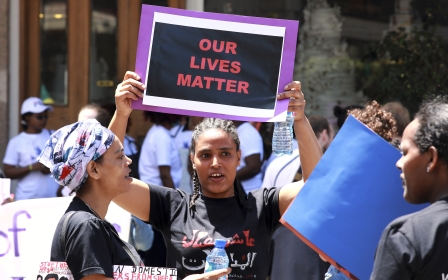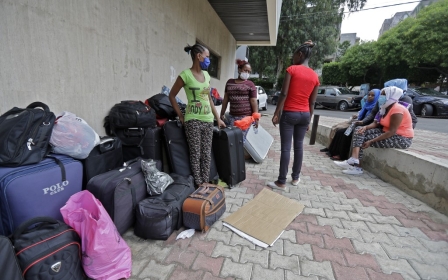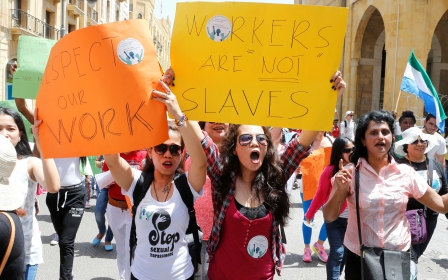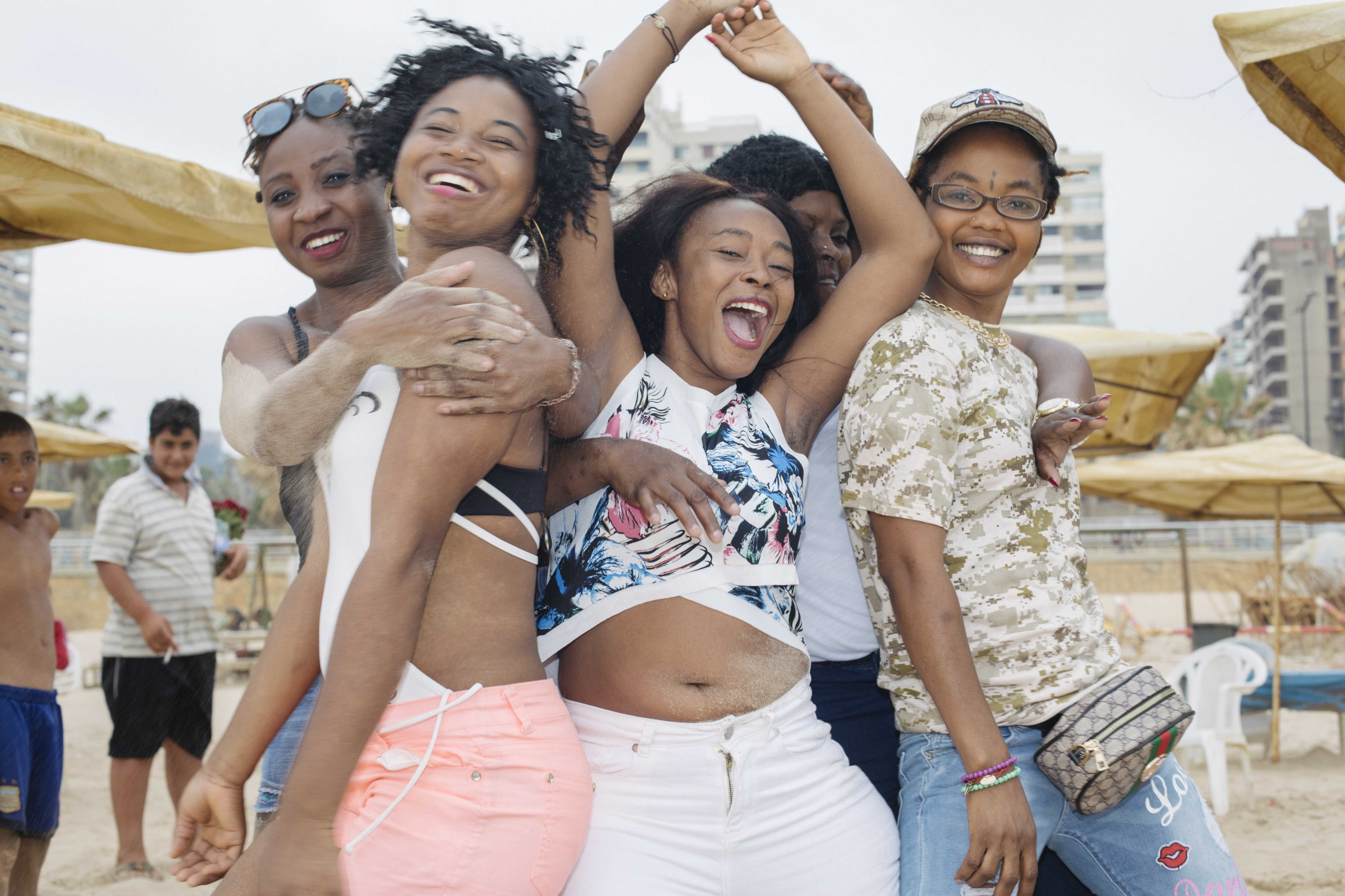
In pictures: Domestic workers in Lebanon find relief at the beach
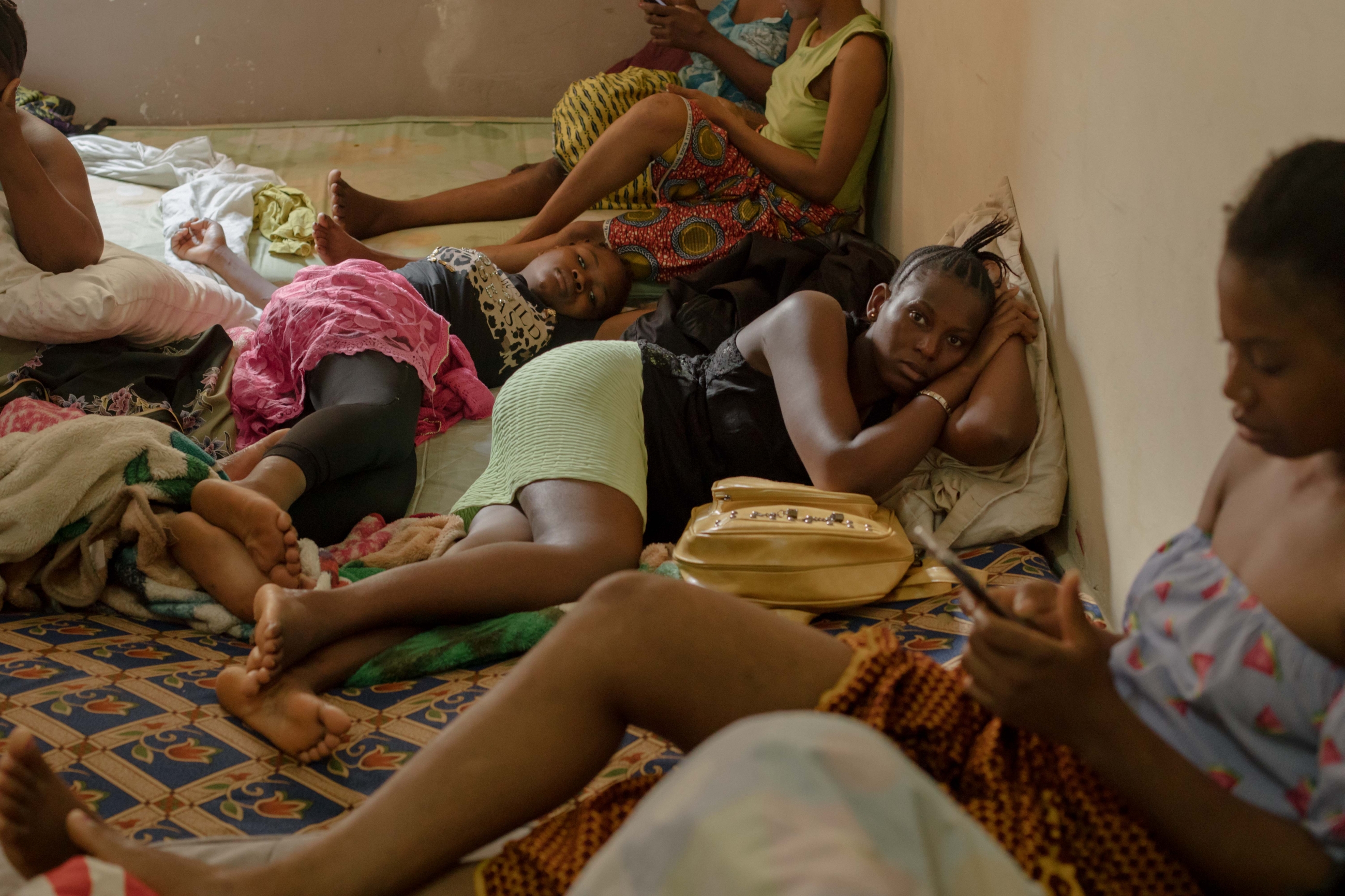
After visiting Lebanon for the first time as a tourist in 2019, French-Thai photographer Aline Deschamps was shocked by the conditions domestic workers found themselves in. Deschamps began to document the small apartments many were living in as she became aware of the rising rate of abuse against domestic workers in the country.
“These women were all confined and living on top of each other in a small apartment. It was continuously hot, noisy and very hard for them to be trapped in such a small place,” Deschamps told Middle East Eye. (All photos by Aline Deschamps)
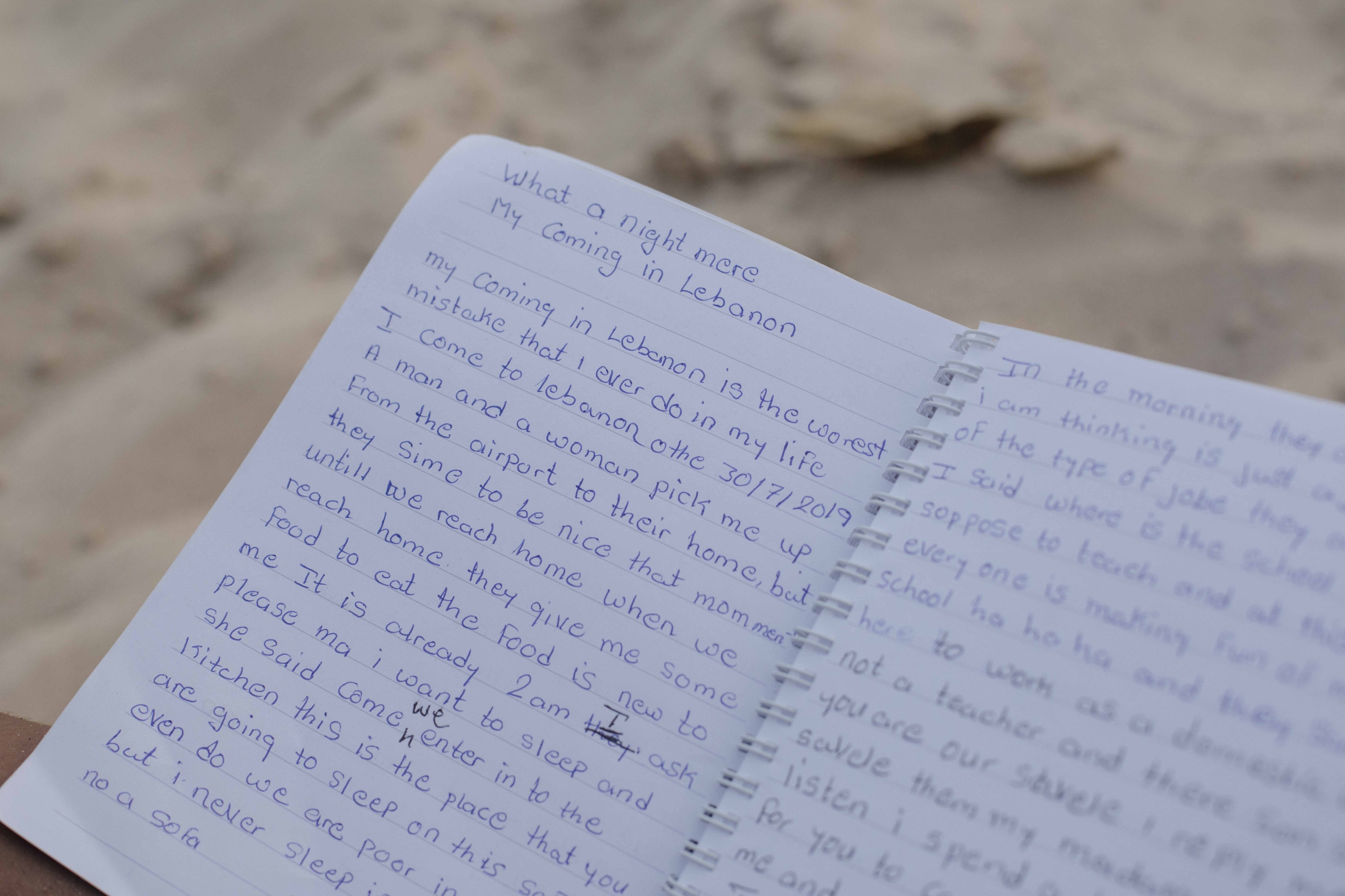
Then as the country went into coronavirus lockdown in March, Deschamps photographed how these women were coping, focusing specifically on workers from Sierra Leone who had escaped from abusive households. The photography project, I Am Not Your Animal, is a reference to I Am Not Your Negro, a documentary based on James Baldwin’s unfinished manuscript, Remember This House, which explores the history of racism in the United States.
For Deschamps, the title came to her after carrying out extensive interviews with migrant domestic workers, many of whom had their passports confiscated, were not given days off and were forced to sleep in kitchens or balconies. “They felt dehumanised, and 'I was treated like an animal' was a sentence that was repeated during my interviews with the women.”
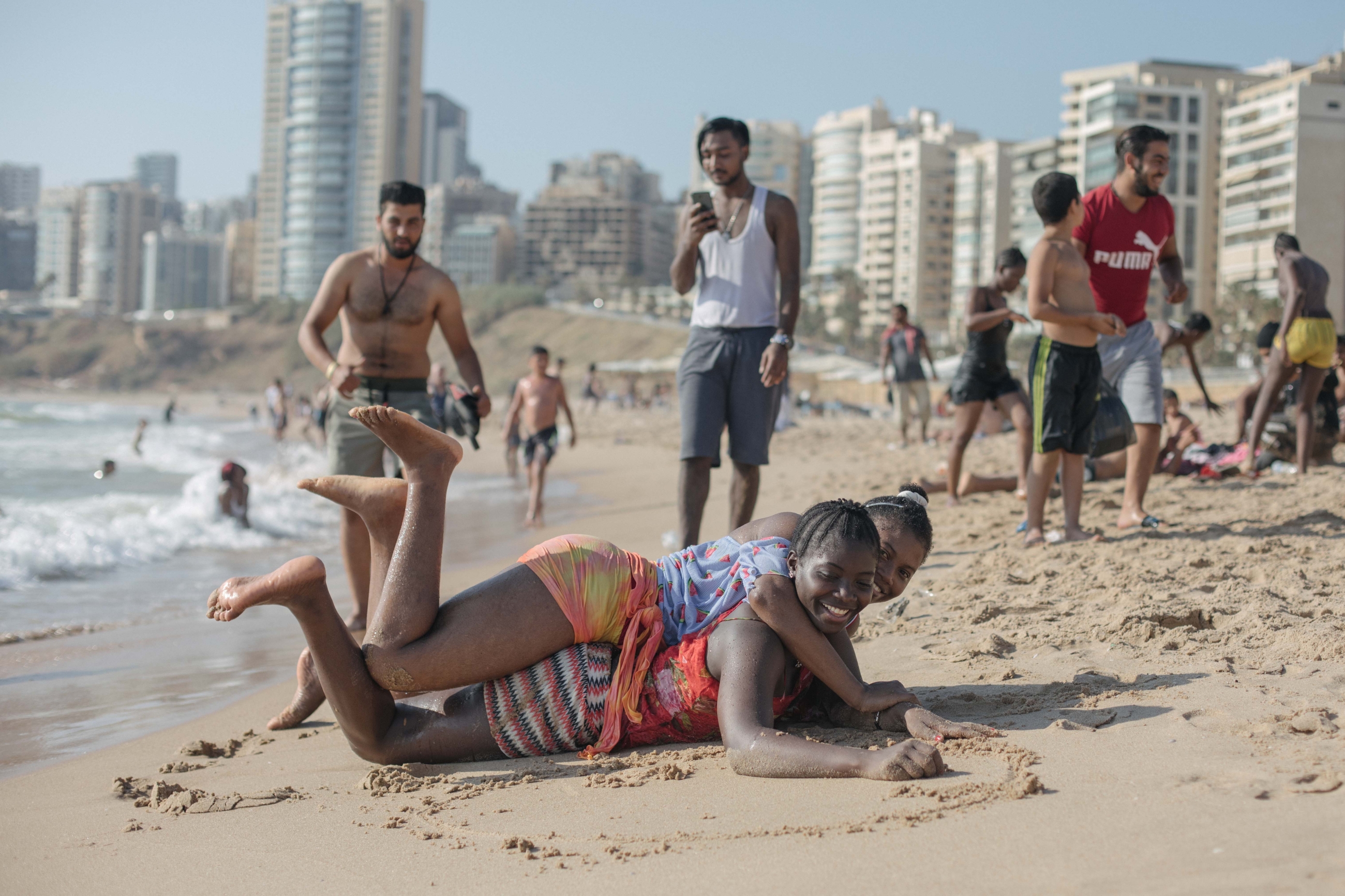
Deschamps decided to take the workers to a nearby beach, allowing them to get a much needed break from the confined space they were staying in and the burden of work. “Some of them had told me they had never seen the sea in Lebanon, they did not even know we were close to the sea... So I took them out with me to Ramlet al-Baida beach. They were so excited, dancing, swimming and playing together. That was their first day of holidays in Lebanon, and you can feel it in the images,” she says.
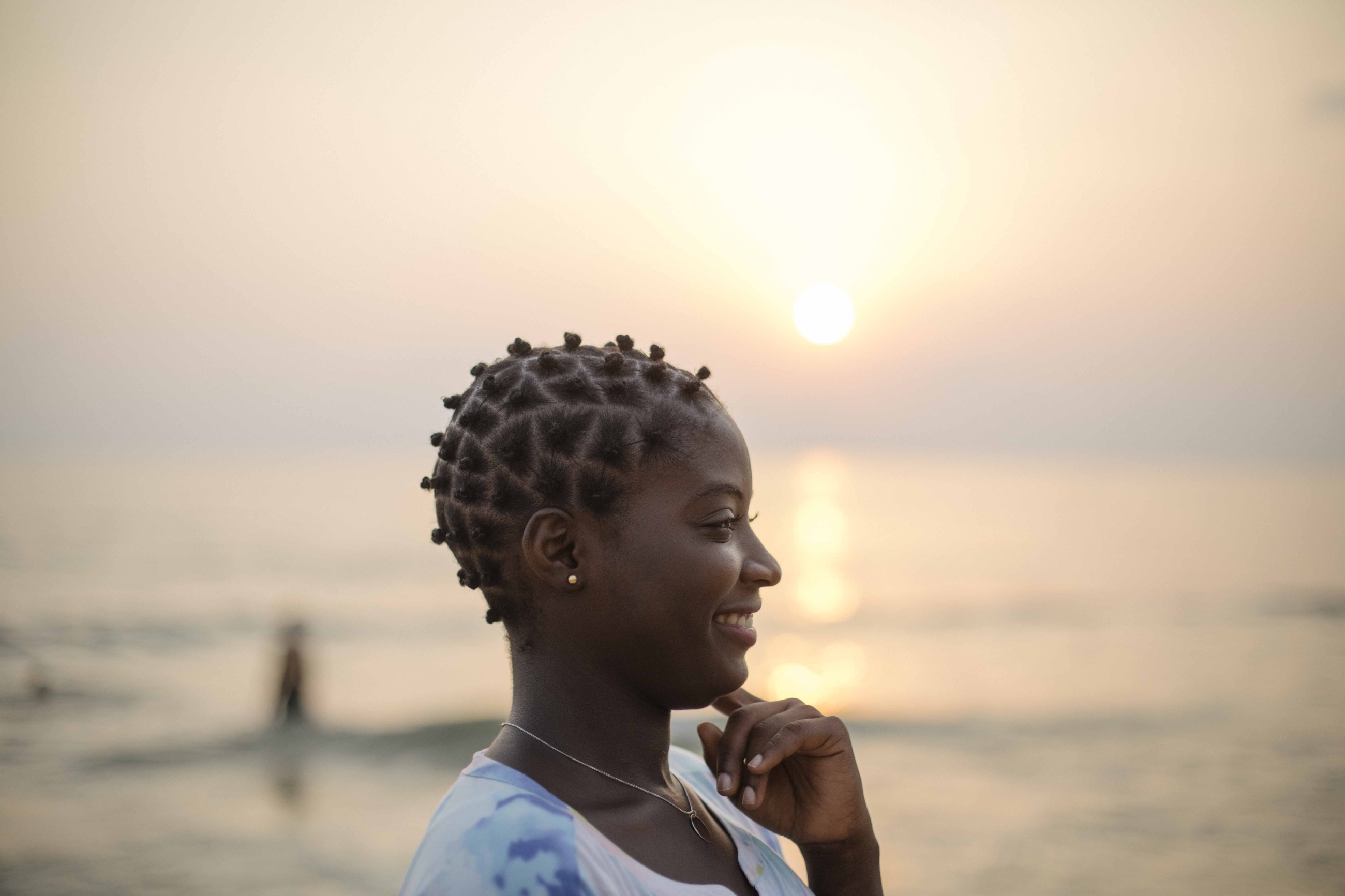
For Deschamps, showing workers having fun at the beach and expressing themselves was a key part of her vision and message. “In my artistic approach I usually try to break stereotypes and reverse the stigma we see in mainstream media. I knew I wanted to represent migrant domestic workers from a place of dignity and power,” she says.
Showing the women having fun at the beach, singing and dancing, was a way for Deschamps to help shift how the women are perceived in the region. “Their beauty, creativity and strength inspired me... it was crucial for me to represent migrant domestic workers having fun and doing ordinary things in order to reveal our common humanity,” she added.
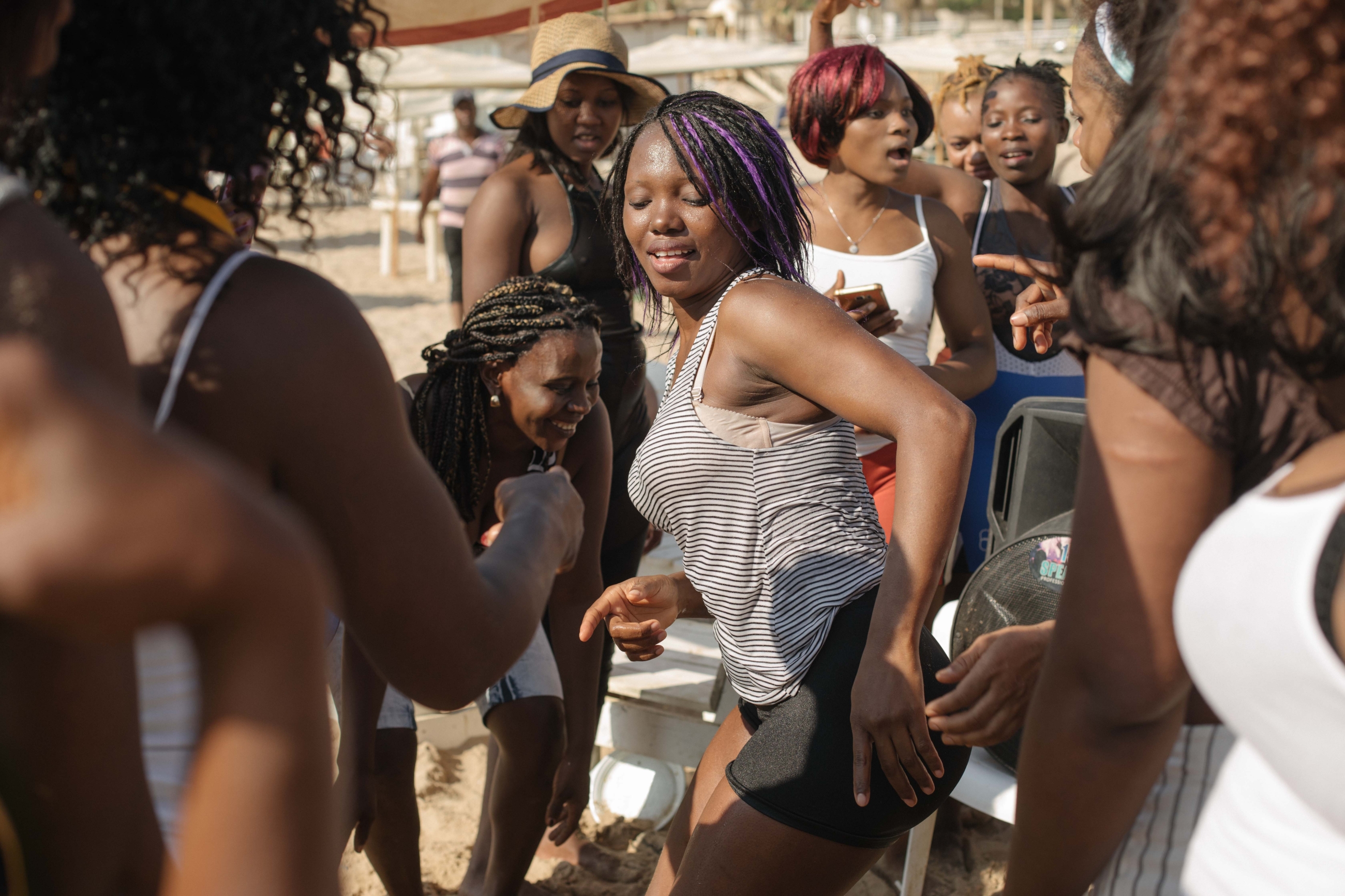
Lebanon has nearly 250,000 migrant domestic workers, the vast majority of them women. Last year, protests broke out over the controversial kafala system, where the residency of foreign workers is tied to the sponsorship of their employer, often leaving them with no protection under Lebanese law.
Deschamps focused her project on women from Sierra Leone after she discovered 15 women living in one small bedroom apartment, most of them telling her they had escaped from abusive households. During her time in Beirut, Deschamps started to notice the number of women ending up on the streets, after having escaped abusive households, increase, and the apartment got more crowded.
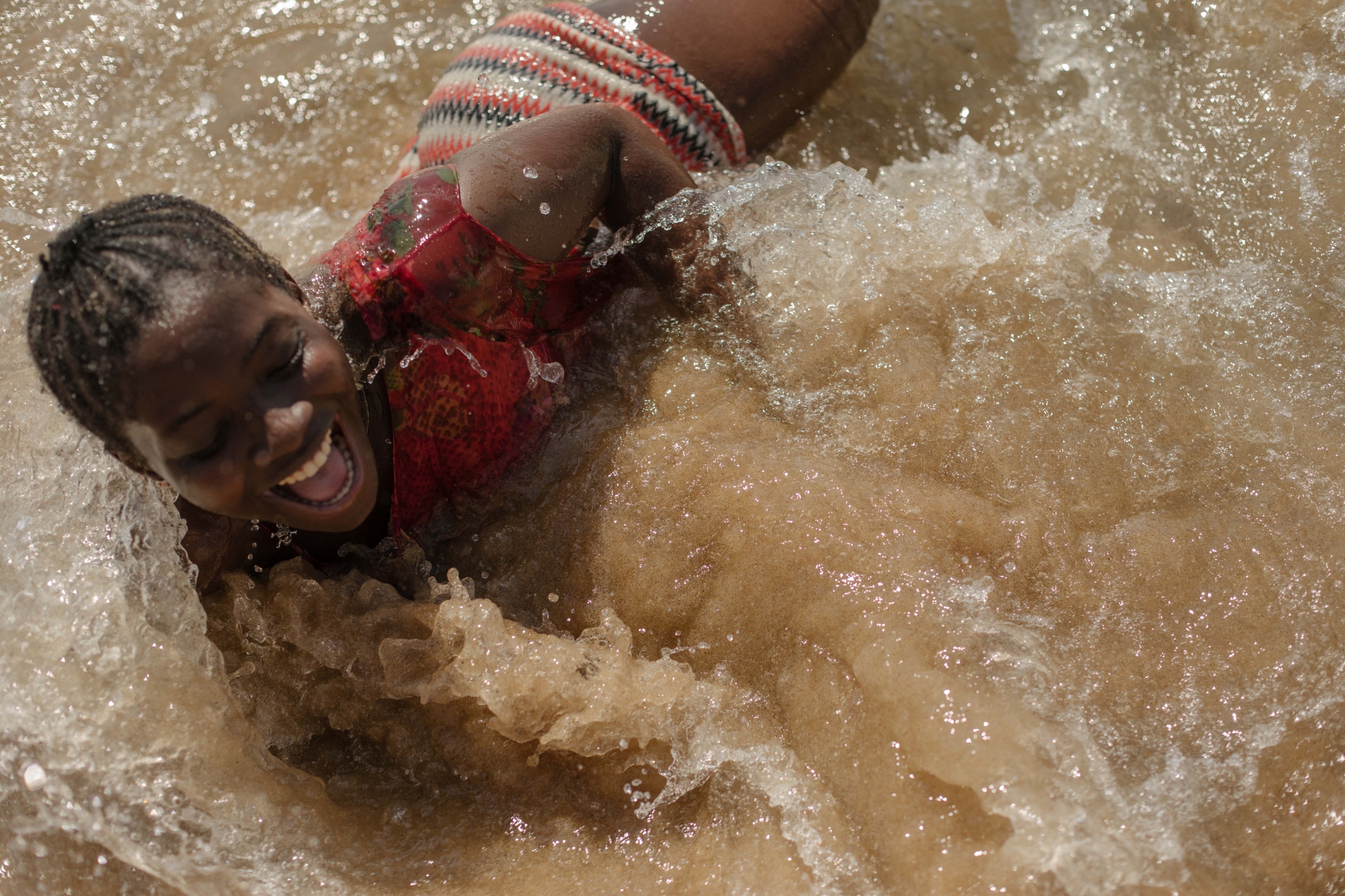
“I also wanted to shed light on them because their community is proportionally very small compared to other diasporas in Beirut,” the photographer said. For Deschamps, the project’s main aim was to represent the women as standing strong on their own, rather than as weak and vulnerable. She wanted to empower them on the same streets they might have previously faced harassment on. Being a woman of a similar age might have helped them feel more comfortable too, she says, and enjoy the process of being photographed.
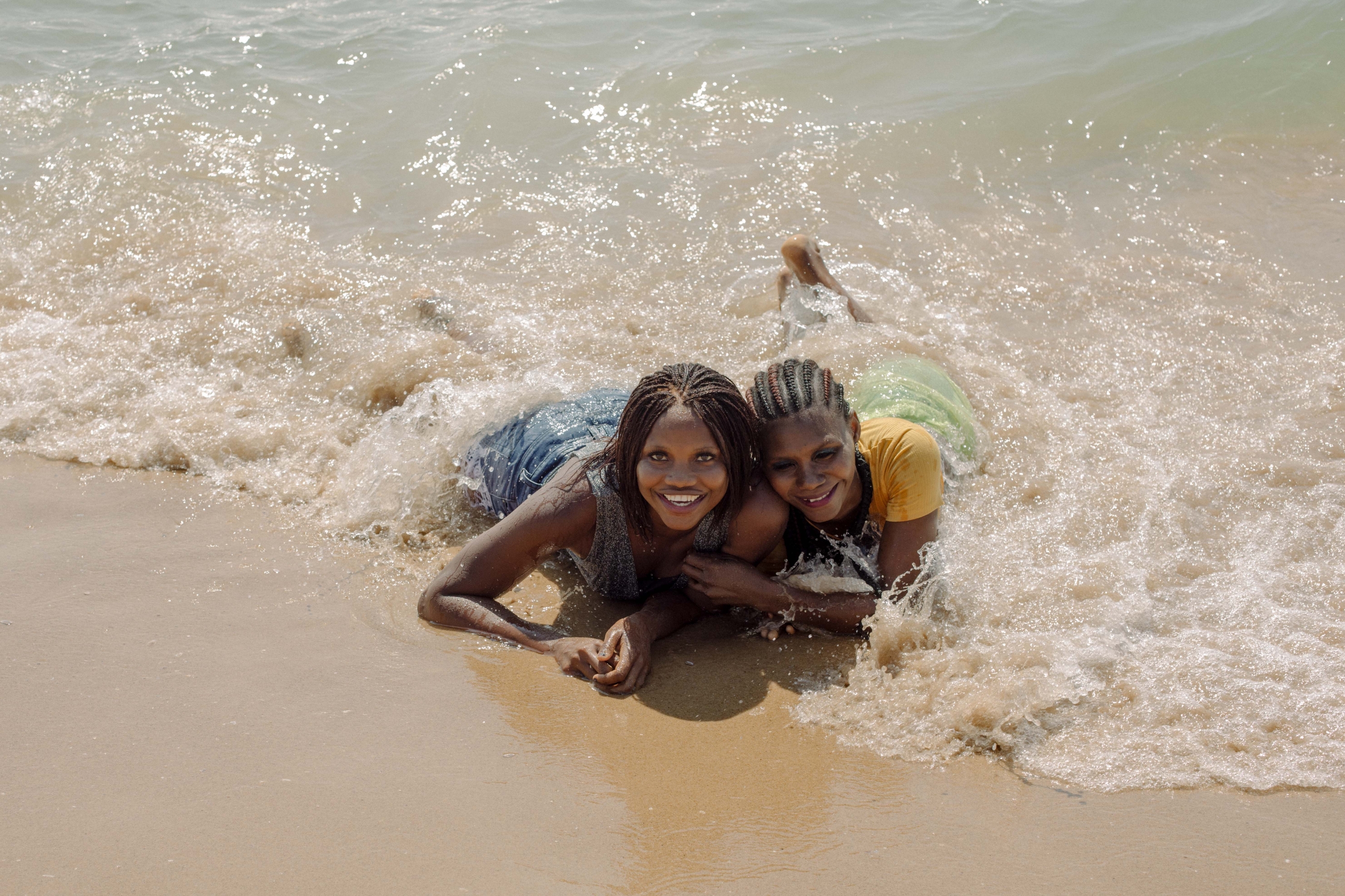
In May, Deschamps set up a fundraising page for domestic workers in Lebanon, which to date has raised more than $30,000. The money has been used to help the workers with their cost of living, from rent, to bills and food. However, for Deschamps, part of her long term goal is to see the women repatriated back to Sierra Leone, which she says is an ongoing and complicated process: "Unfortunately, every day there are new migrant domestic workers on the streets who seek to go home, so the fight continues."
Middle East Eye propose une couverture et une analyse indépendantes et incomparables du Moyen-Orient, de l’Afrique du Nord et d’autres régions du monde. Pour en savoir plus sur la reprise de ce contenu et les frais qui s’appliquent, veuillez remplir ce formulaire [en anglais]. Pour en savoir plus sur MEE, cliquez ici [en anglais].


